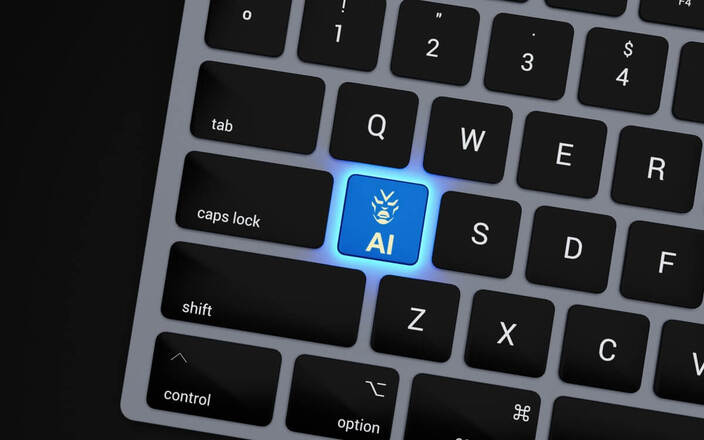
A new global study by Kyndryl paints a revealing picture of enterprise AI adoption in 2025: optimism is high, investment is rising, but most organizations are still struggling to turn pilots into production and people into practitioners.
The Kyndryl Readiness Report, based on responses from 3,700 senior executives across 21 countries, shows that while AI has become the defining business priority of the decade, progress toward true operational integration remains uneven. According to the findings, 62% of companies have yet to move their AI projects beyond the pilot stage, even as 87% of leaders predict AI will completely transform jobs within their organizations over the next 12 months.
That contrast between belief and readiness underscores what Kyndryl CEO Martin Schroeter calls a “readiness gap” – a growing disconnect between technological ambition and organizational capability. “Enterprises are grappling with the promise of transformative value from AI,” said Mr. Schroeter. “While 90% of organizations think they have the tools and processes to scale innovation, more than half are stalled by their tech stack, and less than a third say their employees are truly ready for AI.”
This readiness divide reflects the tension between momentum and maturity. The report shows AI investment accelerating, with business leaders reporting a 33% increase in AI spending over the past year and 68% now investing “heavily” in at least one form of AI. More than half (54%) said they are seeing positive returns on those investments – a notable 12-point jump from 2024. Yet the majority still find themselves locked in a cycle of experimentation rather than implementation, highlighting the challenge of scaling from pilot projects to enterprise-grade deployment.
For many organizations, the obstacle is not just technical but human. Despite near-universal agreement that AI will redefine roles, responsibilities, and entire workflows, few businesses feel confident that their teams have the necessary skills. Only 29% of respondents said their workforce is ready to successfully leverage AI, and a significant share admitted that employees rarely use AI tools in their daily work.
That disconnect is not merely a workforce issue – it’s a cultural one. Nearly half of CEOs said their companies struggle to foster innovation, and 45% described decision-making as too slow to keep pace with the rapid evolution of AI technology. This hesitation could prove costly as industries race to capture early advantages in automation, predictive analytics, and generative capabilities.
Those that are succeeding – what Kyndryl terms the “Pacesetters” – are distinguished less by their budgets than by their mindset. These organizations prioritize upskilling, leadership alignment, and adaptive culture as much as they do infrastructure modernization. They are 32 percentage points less likely to cite their tech stack as a barrier, 30 points more confident in their ability to adapt to regulatory changes, and 20 points less likely to have experienced a cyber-related outage in the past year.
Turning AI Investments into Tangible Returns
Meanwhile, geopolitical and regulatory pressures are forcing many enterprises to rethink their cloud strategies. Three in four leaders said they are concerned about the risks of storing data in global cloud environments, while 65% have already adjusted their strategies – through data repatriation, vendor diversification, or moves toward private cloud models. 70 percent of CEOs even acknowledged that their cloud setup evolved “by accident rather than design,” highlighting the urgency for better planning in a fragmented global data landscape.
Cybersecurity has emerged as a leading AI use case, with many organizations now deploying AI-driven systems to detect and respond to threats in real time. Yet this same focus on resilience has heightened expectations for measurable ROI. Nearly three in five executives said they feel more pressure this year to demonstrate tangible returns from their AI investments than last year.
Taken together, the report’s findings reveal an enterprise community caught between aspiration and execution. AI is no longer an experimental technology – it is an operational imperative. Yet the promise of productivity and transformation is colliding with a shortage of talent, a patchwork of legacy systems, and a cautious corporate culture that still struggles to move at AI’s pace.
The Kyndryl report suggests that closing this readiness gap will define the next chapter of digital transformation. Enterprises that can modernize infrastructure, upskill their people, and align leadership around AI’s potential may soon outpace their peers – not just in productivity, but in resilience, compliance, and competitiveness. For the rest, the window to evolve from pilot projects to production-scale intelligence is rapidly narrowing.
The 2025 Kyndryl Readiness Report integrates insights from Kyndryl Bridge, the company’s AI-powered, open integrated digital business platform, with survey data from 3,700 senior leaders and decision-makers in 21 countries. The report identifies the factors that can make or break an organization’s capacity to safeguard, maintain, and improve performance as well as future-proof its mission-critical procedures.





